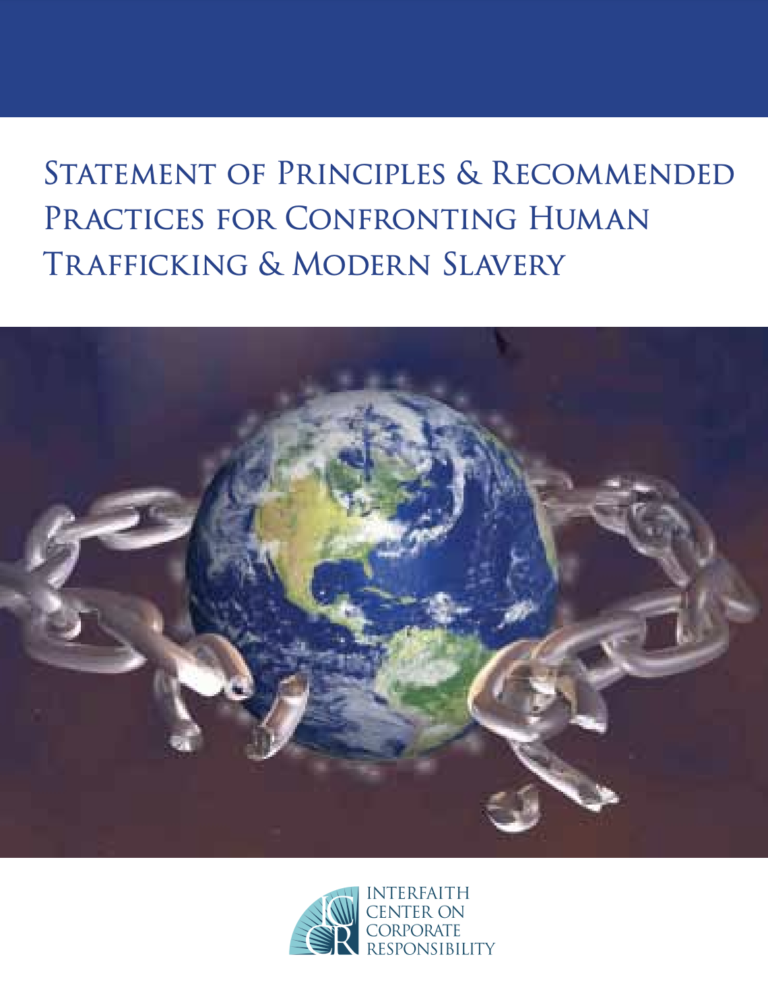The exploitation of persons– for labor or sexual purposes– is the third-largest illegal “business” after drug and arms trafficking. While slavery was officially abolished in the United States 150 years ago, in 2012 the International Labor Organization conservatively estimated that some 21 million persons globally, including in the US, remain enslaved. 14.2 million people are victims of forced labor and another 4.5 million are victims of forced sexual exploitation. Other estimates put the victims of modern-day slavery much higher, however due to the clandestine nature of trafficking, it is difficult to get accurate numbers. For this reason, building public awareness of labor and sex trafficking is imperative. Due to recent media attention, new domestic and international legislation, consumer pressure and the collective initiatives of faith-based and non-governmental organizations, human trafficking and modern-day slavery are no longer considered underground crimes committed in far off lands, but understood as real threats that are “hidden in plain sight”.
This report by the Interfaith Center on Corporate Responsibility offers recommendations for companies to fight human trafficking.

